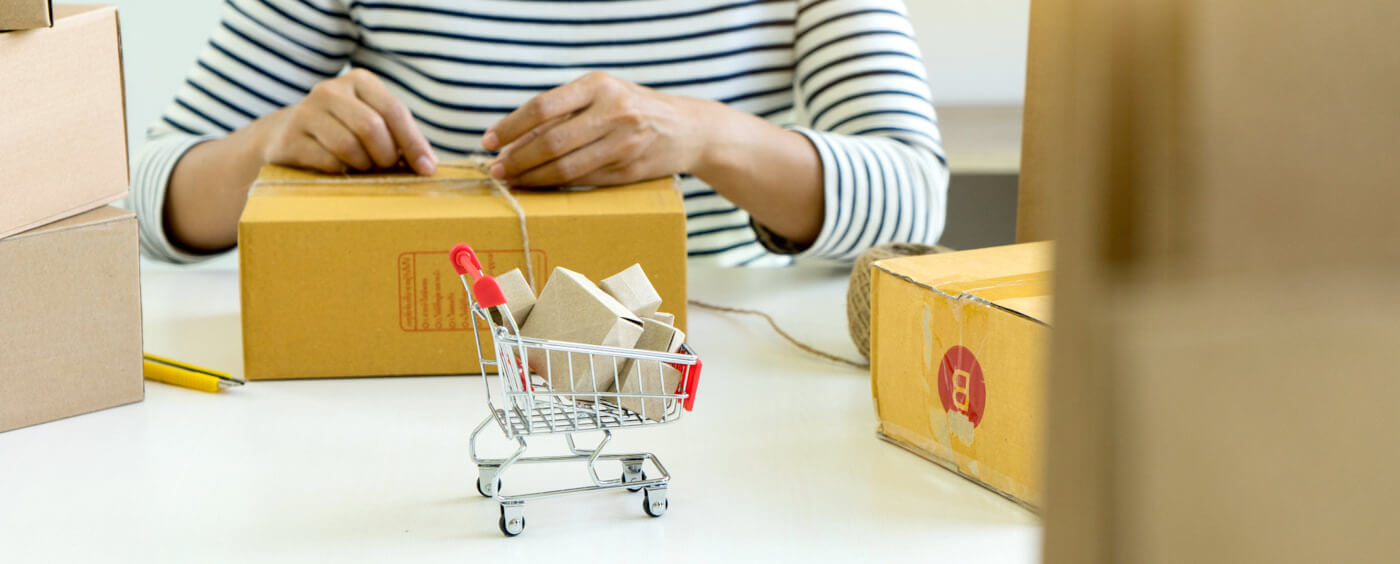What the Czech Trade Inspection Authority is and does
The Czech Trade Inspection Authority (CTIA) is an administrative body subordinate to the Ministry of Industry and Trade of the Czech Republic, its task is to supervise compliance with laws related to the offer, sale, supply and marketing of products and the provision of services.
The CTIA is divided into a central inspectorate and seven regional inspectorates in regional cities, each with its own director appointed by the CTIA’s central director.
Its powers include, inter alia, out-of-court settlement of consumer disputes and supervision of fairness in sales, with the exception of quality control of food, meals and tobacco products, which falls under the competence of the State Agricultural and Food Inspectorate and the State Veterinary Administration.
Are you solving a similar problem?
Do you need legal help in business?
Don’t have time to look for a lawyer for your company every time? Arranging his time, catching up with him and dealing with billing? Or do you even need to have an attorney available at all times? We are at your disposal.
I want to help
- When you order, you know what you will get and how much it will cost.
- We handle everything online or in person at one of our 6 offices.
- We handle 8 out of 10 requests within 2 working days.
- We have specialists for every field of law.
Reasons for an inspection from the Trade Inspection Authority
The Czech Trade Inspection Authority may stop by your shop for an inspection for many reasons (and actually doesn’t need a reason). In practice, the following are the main reasons for inspections:
- On the basis of a complaint: the CTIA may carry out an inspection on the basis of a complaint from a consumer or other entity that believes their right has been violated or the law has not been complied with. The complaint may relate, for example, to unfair commercial practices, poor product quality or non-compliance with contractual terms and conditions. Upon receipt of a complaint, the CTIA investigates the facts and may proceed to carry out an inspection to verify the facts stated in the complaint.
- Random: The CTIA has the right to carry out random inspections without prior notice or warning. This type of inspection is used to monitor the market on a regular basis and ensure compliance with the law by operators regardless of their history or previous complaints.
- Scheduled inspections: the CTIA may set scheduled inspections based on a risk analysis of the market. This approach allows it to focus on specific areas or sectors that are considered to be at risk of compliance.
- At the request of other authorities: the CTIA may be mandated to carry out inspections at the request of other public authorities or institutions.
- On the basis of past infringements: the CTIA may also carry out an inspection if an entity has repeatedly infringed its obligations and consumer rights in the past. This type of inspection serves to monitor compliance with measures taken after previous breaches and to ensure that errors are not repeated.
Tip for article
Similarly popular as a visit to the CTIA is an inspection from the Labour Inspectorate. In our article you can read how such an inspection takes place and what powers the inspector has.
What does the inspection from the CTIA look like
CTIA inspectors will visit you without prior notice. They have to show their service card, brief you on the inspection and then they can start the inspection. During the inspection, the CTIA may focus on:
- Compliance with the law: the CTIA checks whether you are complying with the applicable legislation on commercial practices, consumer protection, competition, and other relevant areas.
- Quality of products and services.
- Consumer information: inspections also focus on whether consumers are properly informed about the characteristics of products or services, prices, conditions of sale or contractual obligations.
- Consumer rights: An important part of the checks is the rights of consumers, be it complaints, the right to information, the right to compensation, etc.
- Product safety: the CTIA also deals with the safety of products and their compliance with relevant technical standards and safety requirements.
Tip for article
At the end of last year, the GPSR, or General Product Safety Regulation, came into force, adding a number of obligations for businesses. Find out what they are and whether they apply to you.
During an inspection, the inspector may ask you to do a number of things and you are obliged to comply. For example:
- Production of documents and records: the inspector may require you to produce various relevant documents such as invoices, contracts, complaint reports, records, or other documents related to the business transactions or services provided.
- Access to premises and facilities: If necessary for the purpose of the inspection, the inspector may require access to your business and production premises.
- Explanations and answers to questions: The inspector may ask questions and request explanations related to the inspection being conducted, such as descriptions of business practices, production or distribution processes.
- Product samples: If relevant for the purpose of the inspection (for example, during product quality checks), the inspector may take product samples for laboratory testing.
- Inspection purchases: the inspector may make an inspection purchase from you, even without revealing his or her identity.
- Measurements: inspectors can carry out measurements and check the technical parameters of products or the environment.
- Recording and audio: In certain cases, the inspector may take audio and visual recordings, which are then used as evidence to evaluate the inspection and document the actions taken.
After the inspection, the inspector evaluates the information gathered and may decide on further action based on the findings. The CTIA also prepares a written report containing a description and the results of the inspection. However, it does not contain any sanctions that may be imposed, only information on what violation of the rules has occurred.
What you risk if you do not comply with the rules
The inspector can take a number of measures on the spot:
- Prohibition of marketing, distribution and sale: the inspector can prohibit the marketing, distribution, purchase, supply, sale or use of products on the spot if they do not comply with the legislation or are misleadingly labelled.
- Prohibiting the use of unverified measuring instruments: If an inspector finds that you are using the wrong meters, he or she may order you to stop using them immediately.
- Ordering the disposal of products that are unhealthy: If an inspector finds your products to be unhealthy, he can order them to be disposed of on the spot to prevent them from harming consumers.
- Seizure of products: If your products are not being sold or stored in accordance with the legislation, the inspector may seize them on the spot and you are obliged to give him any products he requires.
- Restriction of activities or closure of premises: In the event of a serious breach of legal obligations that may lead to a risk to the life or health of consumers, the inspector has the power to order a restriction of your activities or even to close your premises. This measure can be ordered for up to two sales or operating days.
You are obliged to comply with the inspector. However, you can then object to the order in writing within 3 working days of the inspection.
Once the inspection is completed, the CTI issues a written report with information about the inspection and, if applicable, the rules that were broken. You again have the right to object to this report within 15 days of receiving the written report. Your objection must specify which inspection finding is being objected to and the reasons for it.
On the basis of the inspection, the CTIA may impose a fine on you. The amount of the fine is limited to a maximum of CZK 5,000 on the spot and can reach up to CZK 50 million in administrative proceedings. The highest fines are imposed if your actions endangered the life and health of consumers. In addition to the fine, you may face criminal prosecution in serious cases.
Tip for article
Don’t go to court alone and enlist the help of an Affordable Lawyer. Describe your problem to us and you will have clarity within 24 hours.
How to file a complaint with the CTIA
If you are on the other side of the barricade and have encountered unfair practices of sellers or unsatisfactory product quality as a consumer, you have the opportunity to submit a complaint to the CTIA for inspection. You can make your complaint in person orally on the record at the inspectorate or send it in writing. The easiest way to make a submission is electronically directly on the CTIA website.
In your submission, you must indicate to which inspectorate you are making the submission (according to the registered office of the company to which the submission relates) and describe in detail why you are making the submission. You can also attach attachments as evidence. You must also provide your identification and contact details and basic information about the company concerned.
Tip for article
Have you been disadvantaged in a hotel, shop or restaurant compared to others just because you belong to a certain nationality or have a darker skin colour? Find out how to deal with consumer discrimination.
Summary
The Czech Trade Inspection Authority (CTIA) is a body subordinate to the Ministry of Industry and Trade that oversees compliance with the law in the sale, marketing and provision of services. It also resolves out-of-court disputes and monitors product safety and consumer protection. It can carry out inspections following complaints, planned actions, randomly or at the request of other authorities.
Inspectors come unannounced to check compliance with the law, product quality and consumer rights. They can request documents, access to premises, take samples or carry out an inspection purchase. In the event of a breach of the rules, they can ban sales, seize products, restrict the activity of the establishment or impose a fine – up to CZK 5,000 on the spot or up to CZK 50 million in administrative proceedings.




